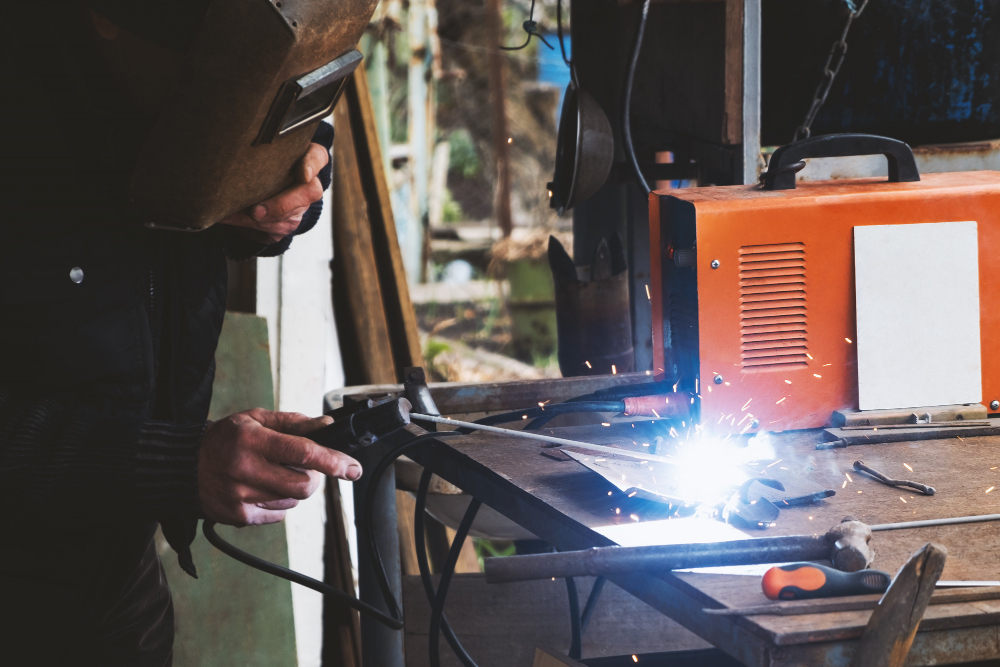Email format error
Email cannot be empty
Email already exists
6-20 characters(letters plus numbers only)
The password is inconsistent
Email format error
Email cannot be empty
Email does not exist
6-20 characters(letters plus numbers only)
The password is inconsistent


Choosing Between CNC and Laser Cutters for Metal: A Comprehensive Guide
When it comes to cutting metal with precision and efficiency, the debate between CNC (Computer Numerical Control) machines and laser cutters is a hot topic in the manufacturing and crafting communities. Each technology offers unique advantages and is suited to different types of projects. In this blog, we’ll dive deep into the differences between CNC machines and laser cutters for metal, explore their respective benefits, and help you decide which might be the best fit for your needs.
Understanding CNC and Laser Cutting Technologies
CNC Machines:
CNC machines have revolutionized the way metal is cut and shaped. They use a computer to control the movement of tools, which are responsible for cutting, milling, drilling, or engraving metal. The key here is precision. CNC machines operate with a high degree of accuracy and can handle complex designs with ease.
Laser Cutters:
Laser cutters, on the other hand, use a high-powered laser beam to melt, burn, or vaporize metal. The laser’s precision allows for extremely fine cuts and intricate designs. These machines are known for their speed and cleanliness in cutting, producing smooth edges and minimal material waste.
Key Differences Between CNC and Laser Cutters
1. Precision and Complexity
When it comes to precision, both CNC machines and laser cutters excel, but in different ways. CNC machines are great for handling various tools to create complex shapes and detailed work. They can perform multiple operations such as drilling, milling, and turning, all in one setup. This versatility makes them ideal for projects requiring different types of machining.
Laser cutters offer exceptional precision, particularly for intricate designs. The laser’s beam can cut through metal with high accuracy, producing clean, detailed edges that are often difficult to achieve with traditional methods. For projects that involve delicate patterns or detailed artwork, a laser cutter might be the better choice.
2. Material Thickness and Types
CNC machines are versatile when it comes to the types of metal they can handle. Whether you’re working with aluminum, steel, or other alloys, a CNC machine can adapt to various materials and thicknesses. This flexibility is particularly useful for creating parts that require a mix of different metals or various thicknesses.
Laser cutters, however, are typically limited by the thickness of the material they can cut effectively. While modern laser cutters can handle a range of metals, including stainless steel and aluminum, the maximum thickness they can manage varies by machine. Generally, laser cutters are more efficient for thinner metals and may struggle with thicker materials.
3. Speed and Efficiency
In terms of speed, laser cutters have the upper hand. The focused laser beam cuts through metal quickly, reducing production time and increasing efficiency. This rapid processing makes laser cutters ideal for high-volume production where speed is essential.
CNC machines can be slower, particularly for more complex operations. While they are precise and versatile, the multiple steps involved in CNC machining can extend processing times. However, for projects where speed is less critical and precision is paramount, CNC machines can still be very effective.
4. Cost Considerations
The cost of CNC machines and laser cutters can vary significantly depending on their size, capabilities, and the specific requirements of your projects. Generally, laser cutters can be more expensive due to the advanced technology involved. However, they offer high-speed cutting and precision, which can justify the investment for certain applications.
CNC machines, while potentially less expensive upfront, may require additional tooling and maintenance costs. The overall cost-effectiveness will depend on the types of projects you undertake and the specific features you need in a machine.
5. Ease of Use and Maintenance
Laser cutters are often praised for their user-friendly interfaces and lower maintenance requirements. Once set up, they can run continuously with minimal intervention. The cleaning and upkeep involve mainly ensuring the optics and lenses are free of debris.
CNC machines, on the other hand, may require more hands-on maintenance and a steeper learning curve. Users must be familiar with the various tools and their maintenance to ensure consistent performance. The complexity of CNC programming can also add to the learning process.
Applications and Use Cases
CNC Machines:
- Prototyping: CNC machines are excellent for creating prototypes with intricate details. Their ability to handle various tools makes them ideal for testing different designs and functionalities.
- Custom Parts Production: If you need custom metal parts with specific dimensions and features, CNC machines can deliver accurate results across a range of materials.
- Batch Production: For medium to large batch production, CNC machines can efficiently handle multiple pieces, particularly if they involve different machining processes.
Laser Cutters:
- Art and Design: For artistic projects involving metal, such as custom signs or intricate artwork, laser cutters provide the detail and precision needed to bring creative visions to life.
- Sheet Metal Fabrication: Laser cutters excel in cutting thin sheets of metal with clean edges, making them perfect for fabricating components for electronics, appliances, or automotive parts.
- High-Volume Production: In industries where speed is crucial, such as manufacturing and commercial production, laser cutters can handle large quantities efficiently.
Conclusion
In the CNC vs. laser cutter debate, there’s no one-size-fits-all answer. The choice between CNC machines and laser cutters for metal depends on your specific needs, including the complexity of the design, the types of metal you’re working with, and your production volume.
If you need versatility and can handle a range of metal types and thicknesses, CNC machines might be the better option. On the other hand, if your focus is on precision, speed, and intricate designs, a laser cutter could be the ideal tool for your projects.
Ultimately, understanding the strengths and limitations of each technology will help you make an informed decision and choose the right equipment for your needs. Whether you’re cutting metal for a custom project or high-volume production, both CNC machines and laser cutters offer powerful solutions to meet your metalworking requirements.

